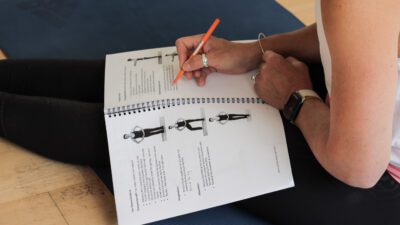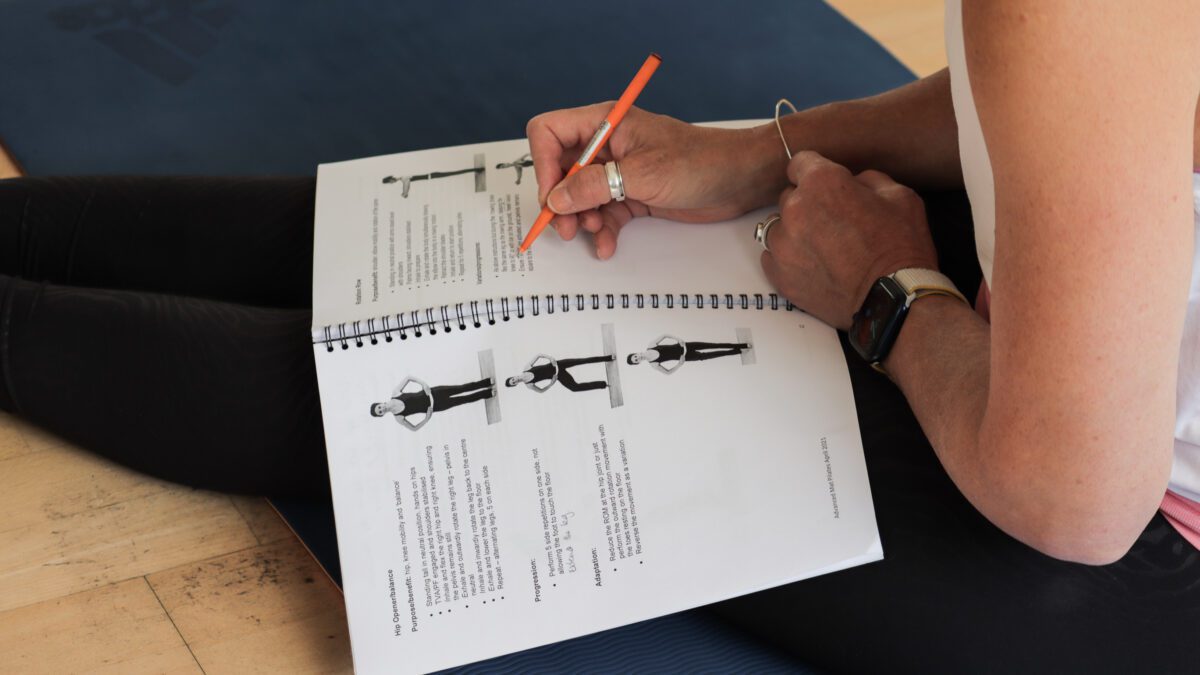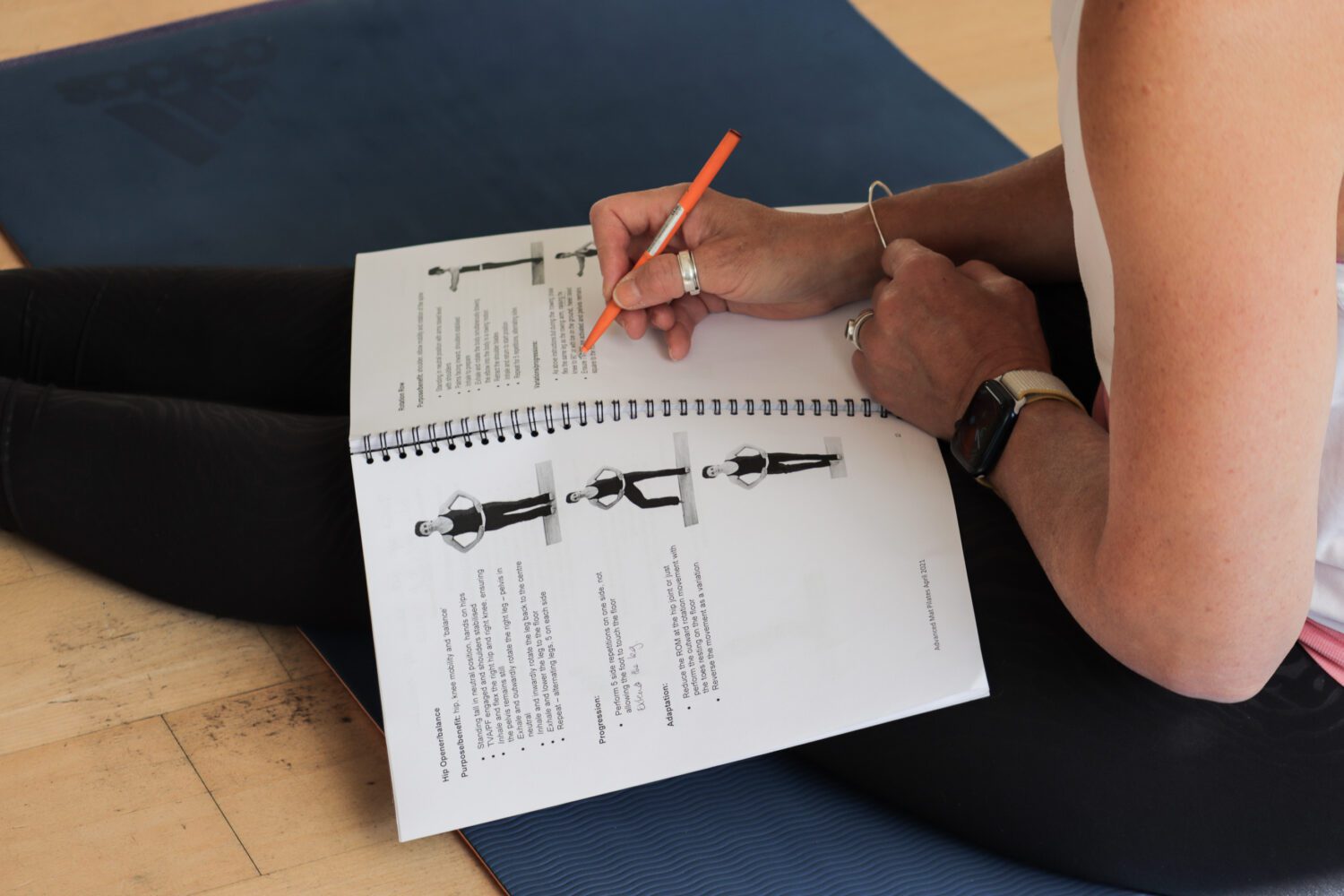



Improving your health and well-being can often require guidance and encouragement.
Recognizing this need, the NHS GP Exercise Referral Scheme taps into the power of physical activity. By connecting individuals with medical conditions to tailored fitness programs, this initiative not only fosters physical improvement but also improves mental health.
Whether you need to understand the eligibility criteria or seek to participate as an exercise professional, this article serves as your key resource. Unlock the full potential of this program and step into a world where health objectives are within your reach.
>> LEARN MORE: Benefits of Exercise Referral Qualification
The Exercise Referral Scheme is a health intervention strategy that grants patients access to tailored physical activities.
Patients are referred by their GP or a healthcare professional based on the premise that exercise can significantly contribute to the management and improvement of their health condition.
>> LEARN MORE: Exercise Referral Level 3 Course

The main goal of this initiative is to enhance the patient’s quality of life through structured support and monitored physical activity programs. On receipt of a referral, qualified exercise specialists assess the patient’s health status, develop a personalized exercise plan, and offer guidance throughout the program.
The structured nature of the scheme ensures progress is tracked and the exercise regimen is adhered to, with adaptations made as necessary.
Individuals with chronic conditions such as obesity, diabetes, and heart disease find this program particularly beneficial. The tailored workout regimens can alleviate symptoms, improve overall health outcomes, and in some cases, reduce the reliance on medication. Engaging in regular physical activity under the scheme can also prevent the onset or progression of other health issues.
Exercise specialists and patients collaborate to devise a feasible and enjoyable routine, thereby encouraging consistent participation which is vital for the success of the scheme. The collaborative nature of the scheme allows patients to feel more in control of their health journey.
By offering a structured yet flexible approach to exercise prescription, the Exercise Referral Scheme presents a doorway to a healthier lifestyle for those needing a guided pathway to physical activity.
>> LEARN MORE: Exercise Referral Level 3 Course

The NHS exercise referral scheme is designed with definitive outcomes in mind. By recommending gym sessions, the scheme aims to diminish chronic disease incidences, notably heart disease and diabetes.
Linking individuals to physical activity opportunities showcases a commitment to proactive health management, highlighting the interplay between lifestyle choices and long-term health trajectories.
Through this strategic vector, the NHS fosters an environment where gym-based activity becomes a cornerstone of preventive medicine, steering society towards robust health and vitality.
Those with chronic conditions, identifiable risk factors for chronic diseases, or specific lifestyle considerations, such as sedentary behaviour, often make the list for exercise referrals.
Chronic conditions may include type 2 diabetes, obesity, heart disease, or depression. These conditions benefit from regular physical activity, which helps manage symptoms and potentially reduce medication dependence.
Moreover, individuals with risk factors for such chronic conditions, like hypertension, elevated BMI, or a family history of heart disease, often qualify. Lifestyle considerations take into account factors like age and current physical activity levels. An older adult or someone with a particularly inactive lifestyle may also be recommended for this program.
Assessment by the GP is very important; this ensures the exercise program aligns with individual health needs and goals. The referral is not just a sign-up sheet to a local gym – it is a structured program designed to support the patient’s specific requirements.
>> LEARN MORE: Exercise Referral Level 3 Course
Gaining access to a GP exercise referral scheme requires meeting certain criteria.
Adults over 16 years old who are minimally active, engaging in less than 30 minutes of exercise a week, often qualify. Those who carry extra weight, signified by a body mass index (BMI) over 30, are also prime candidates.
Chronic health conditions warrant careful monitoring through tailored exercise plans. Individuals living with Type I or II diabetes, asthma, or high blood pressure find these schemes beneficial. Mental health issues, when mild to moderate—specifically depression or anxiety—also fit the access criteria and are frequently referred.
>> LEARN MORE: Exercise Referral Level 3 Course
Seeking a pathway into the Exercise Referral Scheme begins with a professional evaluation. A general practitioner or another healthcare professional must first determine if joining the scheme aligns with one’s current health status and needs. For the elderly or younger individuals, a significant component that professionals assess is whether participation is both safe and beneficial, tailored to individual capabilities.
To initiate this journey, book an appointment with your GP or a qualifying health practitioner. During the consultation, discuss your health and fitness concerns. Be prepared to speak about your current level of physical activity and any medical conditions that may affect your ability to exercise.
Following a thorough assessment, if your healthcare provider concludes that you are a suitable candidate, they will complete a referral form to enrol you in the scheme. Reflect upon your fitness goals and any preferences for activities, as these will guide the tailoring of your exercise plan. Your input is invaluable in crafting a regimen that is both effective and enjoyable.
Patient commitment is the engine driving the scheme’s success. Once enrolled, participants receive structured support and guidance from fitness professionals at local gyms or leisure centres. These establishments cooperate closely with healthcare providers to facilitate a seamless transition into the program. Over time, regular exercise becomes a fixture of the participant’s lifestyle, fostering long-term health benefits.
>> LEARN MORE: Exercise Referral Level 3 Course
Following a GP exercise referral, patients enter a structured pathway designed to improve their health through physical activity. The first contact will be from the gym’s qualified staff, who initiate the engagement by scheduling an initial appointment. This marks the commencement of a personalized 12-week fitness programme.
A key milestone in this journey occurs at the six-week mark, when an assessment takes place. This pivotal moment provides an opportunity to gauge advancements and adapt the exercise regimen if needed. Completion of the programme involves a comprehensive evaluation at week 12, solidifying the achievements made and informing next steps on the patient’s health and fitness journey.
Understanding the financial aspect is equally important. A detailed analysis into the costs associated with a private 12-week personal training programme is available, offering insight into potential savings through the exercise referral scheme.
To explore this financial dimension, a visit to this article on the costs of personal trainers would be enlightening.
The length of an exercise referral program sanctioned by a General Practitioner (GP) typically spans 12 weeks. In some instances, such as the Wales National Exercise Referral Scheme, participants may engage in a structured 16-week program specifically tailored to increase their physical activity levels.
Upon completion of the prescribed 12-week regimen, participants undergo a thorough evaluation. This assessment measures the patient’s adherence to the exercise regimen, progress made, and outcomes achieved. Consistent participation in the program is typically correlated with favourable health improvements.
An exercise referral instructor is a specialised fitness professional trained to support individuals with various medical conditions. These instructors are pivotal in the NHS GP exercise referral scheme. They collaborate with healthcare practitioners and physicians to develop tailored fitness programs, helping clients improve their health, fitness, and well-being. With the right training, instructors enable clients to take proactive steps towards managing their health long-term.
>> LEARN MORE: Exercise Referral Level 3 Course
Fulfilling this role requires a comprehensive understanding of how to design and implement safe and effective exercise programs for a diverse client base. The certification process includes learning how to handle clients with chronic illnesses and adapt exercise to individual needs and limitations. Instructors gain insights into promoting lifestyle changes that are sustainable and empowering for clients.
To embark on this career path, a potential instructor must complete specialized training, such as the course offered by Future Fit Training which is detailed above. This course provides the necessary education on health management and exercise prescription to prepare for work within the scheme. The curriculum covers a breadth of necessary knowledge, from anatomy and physiology to communication skills and motivational strategies.
>> LEARN MORE: Exercise Referral Level 3 Course
On completion of the course, instructors are equipped with the skills to assist participants in reaching their health objectives, effectively making positive contributions to their overall quality of life.